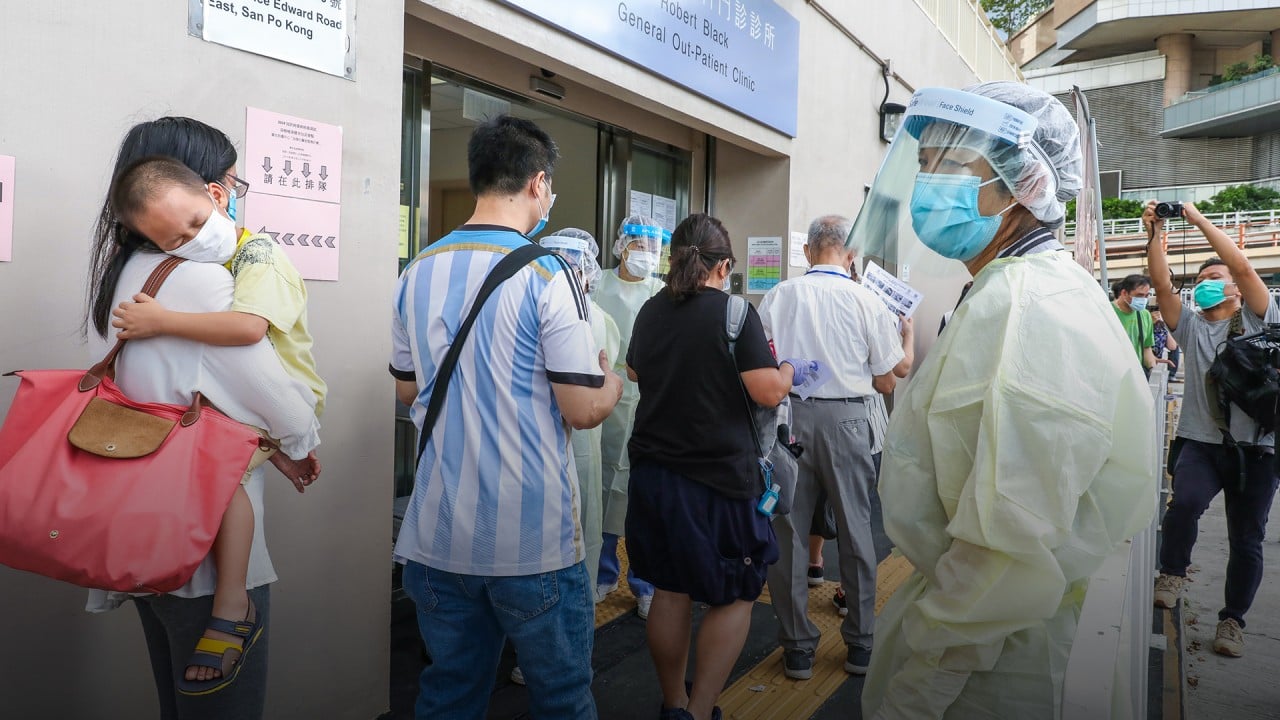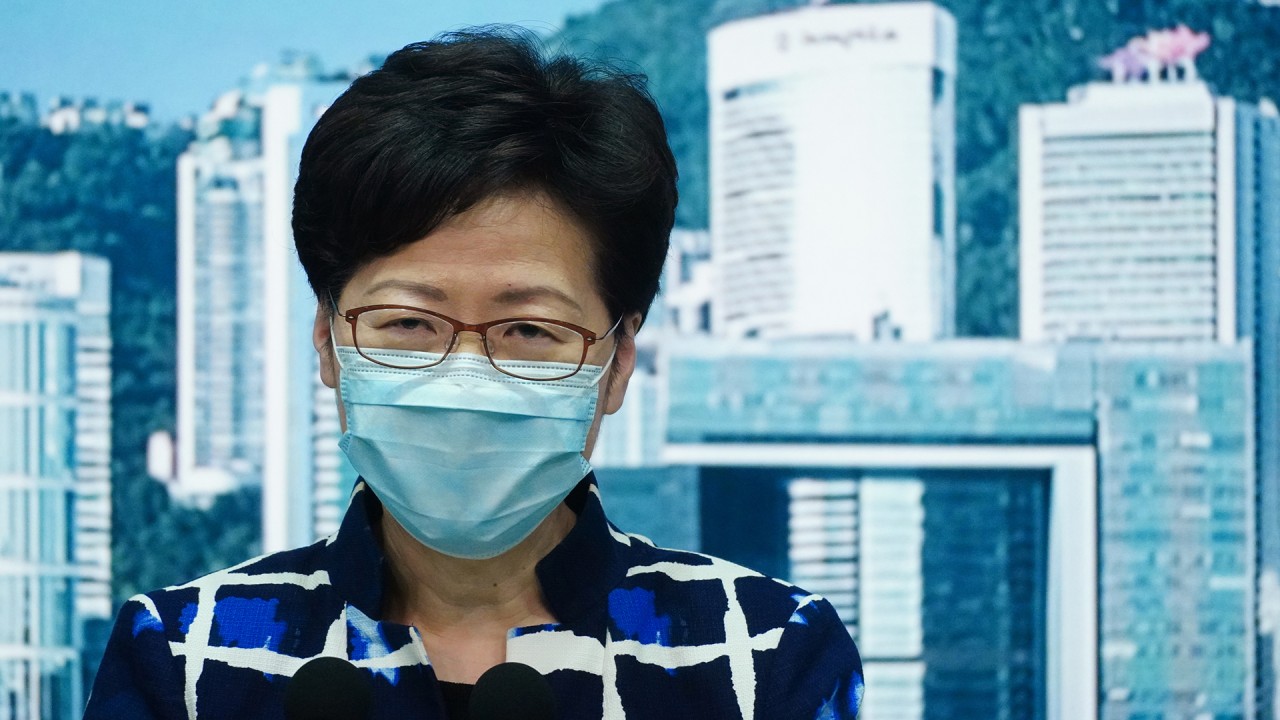
03:07
Hong Kong’s mass Covid-19 testing to begin on September 1, to last at least 7 days

Hong Kong began its one-off Covid-19 mass-testing programme on Tuesday morning. The one-week voluntary scheme aims to identify silent carriers of the coronavirus, and may be extended for no more than seven days.
Here’s what you should know:
Most Hong Kong residents – both permanent and non-permanent – who hold a valid identity card or birth certificate are eligible to join the programme, but not everyone is deemed suitable.
The scheme involves taking samples from the nasal cavity and throat, which means people who have undergone operations in those regions are not fit for the test. Children under the age of six are also excluded.

03:07
Hong Kong’s mass Covid-19 testing to begin on September 1, to last at least 7 days
Dr Chuang Shuk-kwan, head of the communicable disease branch of the Centre for Health Protection, has urged those who have symptoms of the respiratory disease to seek alternative ways to be tested.
“The testing is for [the] asymptomatic general public,” she said on Monday. “This will also help to reduce the cross-infection among participants.”
Secretary for the Civil Service Patrick Nip Tak-kuen, who is in charge of the scheme, said people should make an appointment online before being tested.
They would be asked to provide their names, ID card or birth certificate details, phone numbers, as well as their preferred date, time and location for the test.
He said residents should try to preregister, but added that individual centres would consider testing those who had not registered if they had the capacity.

04:09
Universal Covid-19 tests will not take away testing capacity from others, Hong kong leader says
The government has set up 141 testing centres across the city’s 18 districts, with each facility open from 8am to 8pm.
Centres are expected to close for one hour between 1.30pm and 2.30pm for cleaning and disinfecting, and will also be cleaned and disinfected at the end of the day.
Trained medical professionals have agreed to help collect samples, while civil servants are to be deployed to help with the registration process.
Some 6,000 medical workers and 4,000 administrative staff are prepared to help with the programme, Nip said.
He has urged residents to choose testing centres close to where they live or work, and encouraged employers to allow staff to get tested during work hours if necessary.
As of 6pm on Monday, 97 community testing centres – nearly 70 per cent of the facilities – were fully booked for Tuesday. Fourteen centres have no availability left between September 1 and 7.
Participants need to bring along their original identity document used for the booking, as well as the confirmation text message.
Upon arriving at the centre, people will have their temperatures taken before being sent to a registration counter. The whole testing process should last around 30 minutes, from registering to getting the sample taken.
The actual process of having a sample taken should last about five minutes per person, said Dr David Lam Tzit-yuen, who was one of the 6,000 medical workers who signed up to help.
He said the amount of time residents would have to take their masks off should probably be three minutes at most, and added the risk of cross-infection would be low as the scheme would only be for asymptomatic people.
Nip said medical workers would replace their gloves after taking samples from each person, and would be working as teams under the direction of experienced medical staff.
Meanwhile, people would have to follow social-distancing rules while waiting to be tested.
Those who test negative will receive a text message on their phone in around three days, but people will not get any health code or other certificate of a negative result.
Meanwhile, those testing positive will be called by the Department of Health and sent to hospitals or isolation facilities for treatment. They will not get a text message.
In general, members of the same household will stay together in the same unit in a quarantine centre.
Critics have disputed the effectiveness of the scheme, and raised concerns over biometric data privacy.
They argued the testing would not help the government control the pandemic, if only a fraction of the city’s 7.5 million people take part.
Chief Executive Carrie Lam Cheng Yuet-ngor has accused critics of the scheme of “smearing” the central government, which has sent workers to help.
The government said no personal information would be sent outside Hong Kong, adding the workflow did not involve the provision of any personal data to any organisations or people outside the city.
Meanwhile, the Hospital Authority Employees Alliance, a newly formed union of health care workers that emerged from the anti-government protests last year, and several activists, on Sunday called on the public to boycott the programme, and argued that targeted testing was a better use of resources.
But Dr Linda Yu Wai-ling, a chief manager of the Hospital Authority, said on Monday it supported the scheme, which would help identify asymptomatic patients in the community.
“This programme [is] aligned with our strategy of early testing, early isolation and early treatment, so we would like to show our support to our community,” she said.
Separately, Sweden’s Public Health Agency said last week about 3,700 people received false positive results from a faulty Covid-19 test kit made by BGI Genomics, which is based in mainland China, sparking fears of false positives in the mass-testing programme.
But Professor David Hui Shu-cheong, a respiratory medicine expert at Chinese University who advises the government on the health crisis, said the public should not be worried, as every positive test would be sent to the Centre for Health Protection for confirmation of infection.
“The mechanism is very stringent,” he said. “The additional test for confirmation gives us an extra safeguard.”